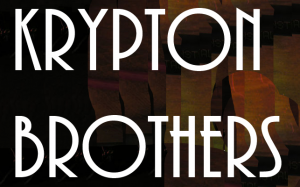NIST Big Data WG Use Case Survey – Version 2
The NIST Big Data Public Working Group survey can be accessed from this Krypton Brothers page, or directly from the Google Docs page. To begin, start on the embedded form below. Scroll down as needed.
The NIST Big Data Public Working Group survey can be accessed from this Krypton Brothers page, or directly from the Google Docs page. To begin, start on the embedded form below. Scroll down as needed.
This is the second version of a use case survey conducted by the NIST Big Data Working Group. If you are working on, or planning a Big Data project, we would like to learn more about your use case.
The survey can take as long as 90 minutes to complete, depending on the extend of the deployment, complexity of applications, infrastructure and security.
[iframe src=”https://docs.google.com/forms/d/1Qp4UvGK3a2kzmkQ6CU2Q-m9iRezDHoelNeXO4m2UcnE/viewform?embedded=true” id=”nistusecase2″ name=”NISTUseCase2″ width=”760″ height=”500″ frameborder=”0″ scrolling=”no” marginheight=”0″ marginwidth=”0″]

Oh, that part of building software that involves talking to ‘the customer’ and making requirements spreadsheets — that’s not real programming. Show me you can use REST.
So goes the thinking of many developers, some of whom are anxious to skip the perceived tedium of business process exercises and get on to the “real work.” For many, software development’s connection to process analytics resembles the electrical conductivity of paper. One reason developers nurture this belief is that much of their income is derived from revising their own work. Imagine that we paid civil engineers to fix their own errors in bridge design. So give it a REST and start improving requirements traceability.
 Garrison Keillor’s regular joke about English majors is mostly spot on. But there may be some exceptions that he is overlooking.
Garrison Keillor’s regular joke about English majors is mostly spot on. But there may be some exceptions that he is overlooking.
Someone at the high profile brand Samsung has recognized the fact. In a post on Samsung Village, they write:
‘. . .We believe the most innovative software can be developed by someone who’s able to think out of the box, even someone who is a total stranger to engineering. Without any fixed ideas or stereotypes, wouldn’t you be able to imagine and create almost anything? That’s why we came up with a special recruiting program called the ‘Samsung Convergence Software Academy.’ Going beyond finding people who are already software experts, we decided to recruit university graduates, who have majored in liberal arts and with little knowledge in engineering, and help them become software experts!
Why aren’t ontologies taught in software engineering curricula? For startings, see this hyper-basic introduction from Spry,